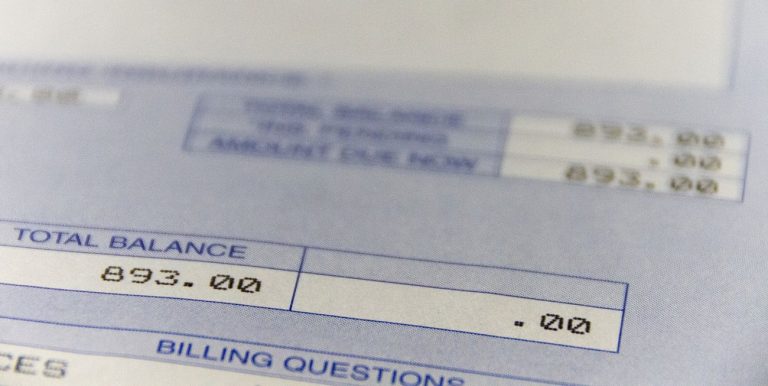Your Credit Rating And What It Affects
In today’s financial landscape, understanding one’s credit rating is paramount. This seemingly abstract number can have profound implications on various aspects of our lives, from the homes we live into the cars we drive. For those seeking to grasp the intricacies of consumer debt and its management, delving into the world of credit ratings is a crucial step.
What is a Credit Rating?
A credit rating is a distilled representation of your financial trustworthiness. Think of it as a report card for your economic behavior. Every time you borrow money or make a financial commitment, you’re being evaluated. And just like in school, consistent good behavior leads to better grades.
Credit monitoring agencies, depending on your jurisdiction, meticulously record each financial transaction. This ever-evolving file is a testament to your financial discipline (or lack thereof).
The Anatomy of Credit Rating Calculation
While the fundamental principle is straightforward – positive scores for payments and negative scores for missed ones – the calculation’s intricacies are more layered:
- Duration of Credit History: It’s not just about how well you manage credit, but also how long you’ve been doing it. A longer credit history often translates to a better understanding of a person’s spending habits.
- Types of Credit: Variety is the spice of life, and in the credit world, it’s an indicator of your ability to manage different financial responsibilities. Mortgages, personal loans, credit cards, and retail accounts all play a part.
- Credit Utilization: This is a measure of how much of your available credit you’re using. A lower utilization rate is often seen favorably, as it indicates you’re not overly reliant on credit.
- Recent Credit Activities: Lenders are wary of those who suddenly open multiple credit accounts or have numerous inquiries in a short span. It can signal financial distress.
The Pervasive Influence of Your Credit Rating
Your credit rating isn’t just a gateway to new credit. Its influence permeates various spheres:
- Interest Rates: A robust credit score is your ticket to lower interest rates. Over a loan’s lifespan, a lower rate can translate to substantial savings.
- Rental Applications: In an increasingly competitive rental market, landlords are more meticulous. A good credit score can be the difference between securing that dream apartment or continuing your search.
- Employment Opportunities: While it might seem unrelated, some employers view a good credit score as an indicator of responsibility and trustworthiness, especially for roles that entail financial duties.
- Insurance Premiums: A good credit score might even reduce your insurance costs. Some insurers believe there’s a link between how one manages finances and the risks they might pose.
Income, Overcommitment, and the Bigger Picture
Your credit rating, while crucial, is part of a larger financial tapestry. Lenders often juxtapose your score with your income. It’s a pragmatic approach. Even with an impeccable credit score, if your income doesn’t support your financial commitments, you’re treading on thin ice.
Overcommitment is a silent financial predator. It’s easy to be enticed by attractive credit offers, but the real challenge lies in distinguishing between what’s attainable and a stretch too far. This discernment is especially vital in a world where consumerism is rampant.
Proactive Management of Your Credit Rating
Awareness is the precursor to management. Regularly reviewing your credit report, ensuring timely bill payments, and being judicious about accruing debt are foundational steps. Discrepancies in credit reports aren’t uncommon. Being vigilant and addressing these anomalies can safeguard your score. If financial waters get choppy, seeking expert advice or exploring debt management avenues can be invaluable.
How is the Credit Rating Calculated?
The process might seem complex, but it’s based on a straightforward principle. Every payment you make contributes positively to your score. The larger the payment, the better the impact on your score. Conversely, missed payments negatively affect your score. Over time, these scores are aggregated into an overall credit rating that reflects your entire credit history.
However, it’s essential to understand that your credit rating isn’t just about payments made or missed. Other factors come into play:
- Duration of Credit History: How long you’ve had credit accounts and the age of your oldest account.
- Types of Credit: The diversity of your credit accounts, such as credit cards, mortgages, and retail accounts.
- Credit Utilization: The ratio of your current credit card balances to your credit limits.
- Recent Credit Activities: How many new accounts you’ve opened or how many times you’ve applied for credit recently.
Why Does Your Credit Rating Matter?
Your credit rating is the first thing lenders look at when you apply for credit. It’s their way of gauging the risk associated with lending you money. A high credit score indicates that you’ve been responsible with your past credit, making you a safer bet for lenders. On the other hand, a low score can be a red flag, suggesting that you might not be as reliable in repaying your debts.
But the implications of your credit rating go beyond just securing new credit:
- Interest Rates: A higher credit score can qualify you for lower interest rates, potentially saving you thousands over the life of a loan.
- Rental Applications: Landlords might check your credit score to determine if you’re likely to pay rent on time.
- Employment Opportunities: Some employers consider credit scores during the hiring process, especially for positions that involve financial responsibilities.
- Insurance Premiums: Some insurance companies use credit scores to determine premiums, believing there’s a correlation between credit management and risk.

Income and Overcommitment
While your credit rating plays a pivotal role, lenders also consider your income. It’s a practical measure. Even the most responsible individual might struggle to make payments if those payments constitute a large chunk of their monthly income. Overcommitment, or biting off more than you can chew financially, is a significant pitfall. It’s one of the primary reasons people find themselves drowning in debt.
For instance, if someone with a stellar credit score but a modest income tries to buy a luxury home with high monthly mortgage payments, they might find themselves overextended. The strain of such a significant financial commitment can lead to missed payments, which in turn can damage that once-stellar credit score.
Managing Your Credit Rating
Understanding your credit rating is the first step. Actively managing it is the next. Regularly checking your credit report for errors, paying bills on time, and being cautious about the debt you take on are all essential practices. If you find discrepancies in your report, address them immediately. If you’re struggling with payments, consider seeking financial counseling or exploring debt management solutions.
Conclusion
Your credit rating is more than just a number. It’s a reflection of your financial journey and can significantly influence your future endeavors. By understanding how it’s calculated and what it affects, you can make informed decisions, ensuring a stable and prosperous financial future. Remember, in the world of consumer debt and its management, knowledge is not just power; it’s freedom.
(Editor update: 9/24/23)
© 2015-2023 by burdenofdebt.com, a LIVenture. All rights reserved. No part of this document may be reproduced or transmitted in any form or by any means, electronic, mechanical, photocopying, recording, or otherwise, without prior written permission of LiVentures LLC.






